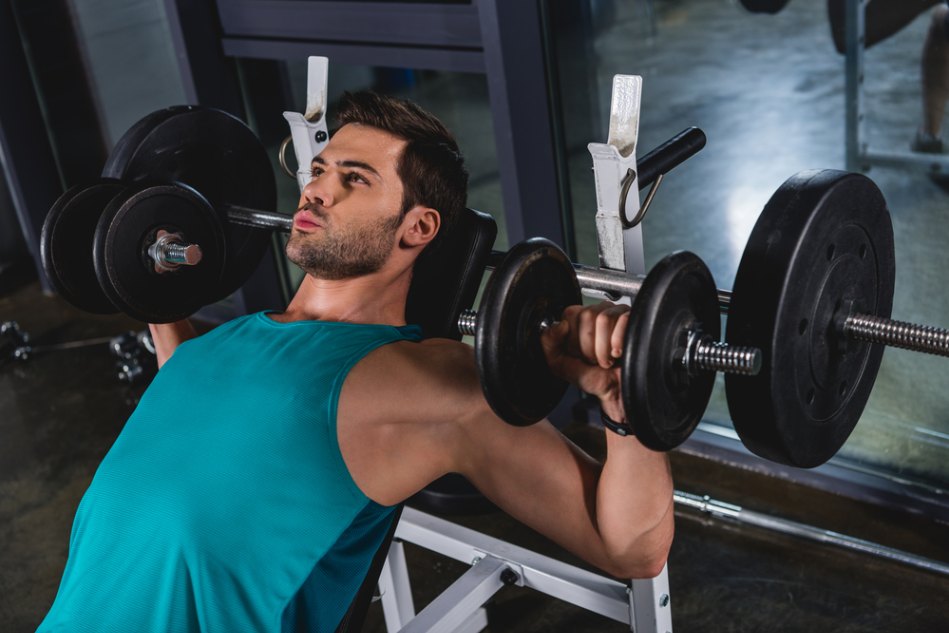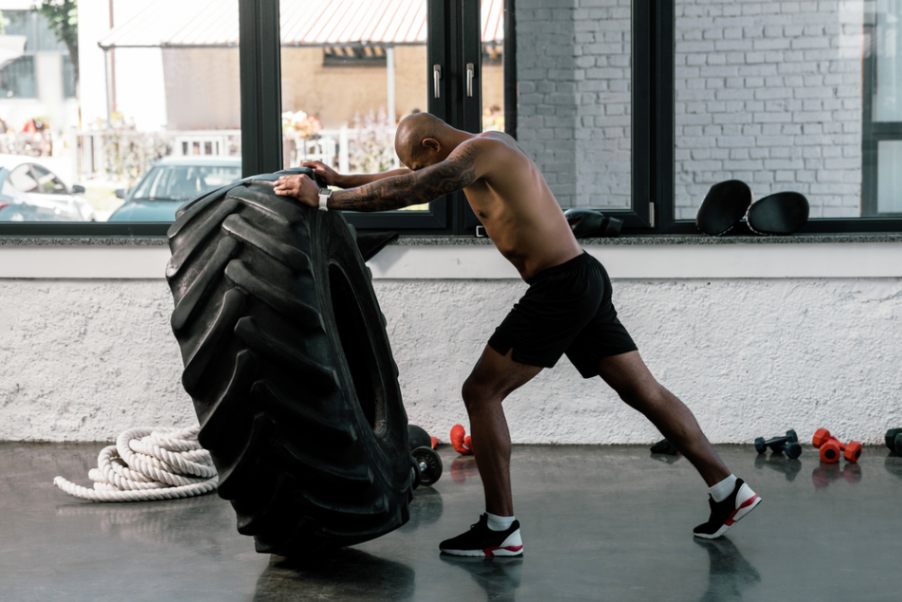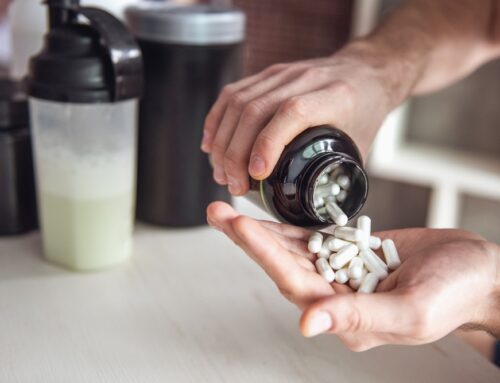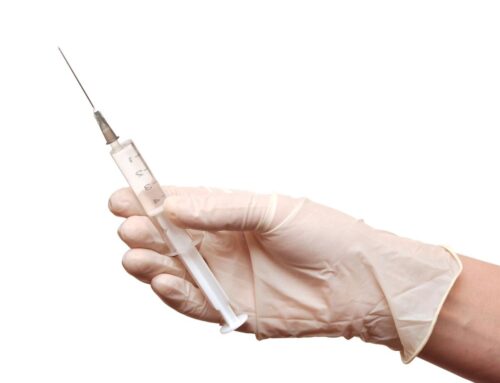Hitting the gym hard? Be careful not to overdo it. Overtraining can mess with your testosterone levels. Testosterone is key for more than just muscular strength. It’s one of the main sex hormones that keep your body in top form.
Lifting weights is a type of resistance training that can up your testosterone. But when you overtrain, those levels can drop. It’s all about balance. Too much physical activity can harm your hormone levels, even if it feels like you’re getting stronger.
Remember, exercise has tons of health benefits. Just make sure not to push too hard. Keep your workouts balanced to maintain healthy levels of testosterone. This way, you’ll get the most out of your gym time without the downside.
The Role of Testosterone in Exercise
Testosterone isn’t just about muscle; it’s a big deal for your whole workout. Clinical studies show that it’s super important for things like muscle growth and getting stronger, especially in your upper body. When you exercise, your body pumps out more testosterone. This helps you build more muscle and get stronger faster.
But testosterone does more than just bulk up muscles. It also helps your bones stay strong and makes more red blood cells. This means you can train harder and bounce back quicker. Plus, it gives you a boost in energy and keeps your mood up. That way, you stay motivated and focused on your fitness goals.
It’s not just about lifting weights, either. Testosterone helps with upper body flexibility and your overall functional capacity. That means you can move better and do more. And for guys, it’s important for reproductive function, too.
Yet, if you overdo it at the gym, it can mess with your hormonal profile. Too much training without enough rest can drop your testosterone levels. So, it’s all about balance. Make sure to rest enough to keep your testosterone working for you. This way, you’ll keep your lean body mass and get all the strength gains without the downside.
Understanding Overtraining and Its Impact
When you’re all about getting fit, it’s easy to think more is better. But pushing too hard can backfire. Overtraining is when your workouts are too intense for your body to heal properly. Here’s what happens when you overdo it:
- Decreased performance: Your body’s like a battery—it needs to recharge. Without rest, you might see your strength and endurance dip. That’s because your physical function needs downtime to improve.
- Increased risk of injury: Imagine your muscles and joints are like rubber bands. Stretch them too much, and they can snap. Overtraining can lead to injuries, making you sit out when you’d rather be active.
- Psychological effects: Your brain needs a break, too. Overtraining can make you feel cranky or less excited about working out. It’s the opposite of the beneficial effects you want from your physical activity level.
Think of your training like a science experiment. The outcome variables—like how much you can leg press or how fast you can run—depend on the right balance. Just like active medication can help with acute increases in health, the right amount of exercise boosts your fitness without the downsides.
Surprising Effects of Overtraining on Testosterone Levels
Overdoing it with exercise can throw your hormones out of whack, especially testosterone. When you push too hard, your body might not make enough testosterone. This can lead to less muscle, weaker strength, and slower recovery times. But that’s not all. Low testosterone can mess with your head, too. It can make you feel grumpy, down, or anxious. Plus, it might even affect your sex drive and performance.
Everyone’s different, so these effects can vary. Your genes and your overall health play a part. To dodge these downsides, it’s key to balance your workouts. Listen to your body. Rest is just as important as the workout itself.
Exercise interventions should be like prescription medications—given in the right amounts. Too much can be harmful. The goal is to find that sweet spot where you get the increases in strength without overdoing it. This includes looking at your dietary habits, too. What you eat supports your upper body strength and helps keep your body lean.
Remember, exercise affects serum testosterone, which is crucial for muscle hypertrophy—that’s how muscles get bigger and stronger. So, smart training plus good rest equals a happier, healthier you.

Finding the Right Balance for Optimal Performance
Getting the best results from your workouts means finding that perfect balance. It’s like walking a tightrope between pushing hard and pushing too much. Here’s how to do it:
- Mix it up: Keep things fresh by varying your workouts. Throw in cardio, strength, and flexibility exercises. This not only works out different muscles but also keeps you from getting bored.
- Rest up: Recovery is key. Your body needs time to heal after you work out. Make sure you’re getting plenty of sleep and eating right. Don’t forget to stretch or use a foam roller to help your muscles recover.
- Listen to your body: Your body sends signals like fatigue and pain to say when it’s time to slow down. If you’re feeling off or not as strong, it might be time for a break.
Why does this matter for your testosterone? Well, previous studies have shown that not balancing these things can mess with your testosterone concentrations. And that can lead to a loss of muscle mass. In the world of sports medicine, these are called secondary outcomes. They’re the other effects of what you’re doing, besides the main goal of getting fit.
Your body also makes luteinizing hormones, which are part of how your body controls testosterone. To keep your aerobic capacity up and your hormones balanced, you’ve got to pay attention to these primary outcome measures. That’s just a fancy way of saying the main things you want to see happen from your workouts.
Strategies to Avoid Overtraining and Boost Testosterone
To steer clear of overtraining and boost your testosterone, rest and recovery are key. Make sure you rest for one or two days each week. This lets your body repair and grow. Sleep is vital too, as it regulates hormones like testosterone.
Change up your workout intensity and volume. Constantly maxing out can lead to overtraining. Mix in lighter workouts or active recovery days. This approach helps your body bounce back.
Good nutrition and staying hydrated are also crucial. They fuel your workouts and support testosterone. This ensures your body functions at its best.
Keep in mind, too much exercise can be too much of a good thing. It’s like with leg press strength exercises; increase them slowly. If you’re thinking about an intramuscular injection for testosterone, that’s a big step. Always talk to a doctor first.
Keep track of your body weights and the progress in your routine. This helps you see the gains without overdoing it. Current studies support these strategies for keeping testosterone levels healthy.
Conclusion
It’s all about striking a balance in your exercise routine for the sake of your testosterone levels. Pushing too hard can lead to a dip in testosterone, which might slow down your progress. It’s crucial to tune into your body’s signals to avoid the pitfalls of overtraining. Balancing your training intensities with additional exercise on rest days can help maintain the anabolic effects that benefit muscle growth.
Remember, there’s no one-size-fits-all in exercise; what works as a therapeutic dose of activity for one person might be too much for another. It’s a reasonable request to tailor your workout plan to your own needs. This way, you can sustain healthy testosterone levels and keep the engine of testosterone production running smoothly. By finding this equilibrium, you’re set to enhance your performance and safeguard your health.





